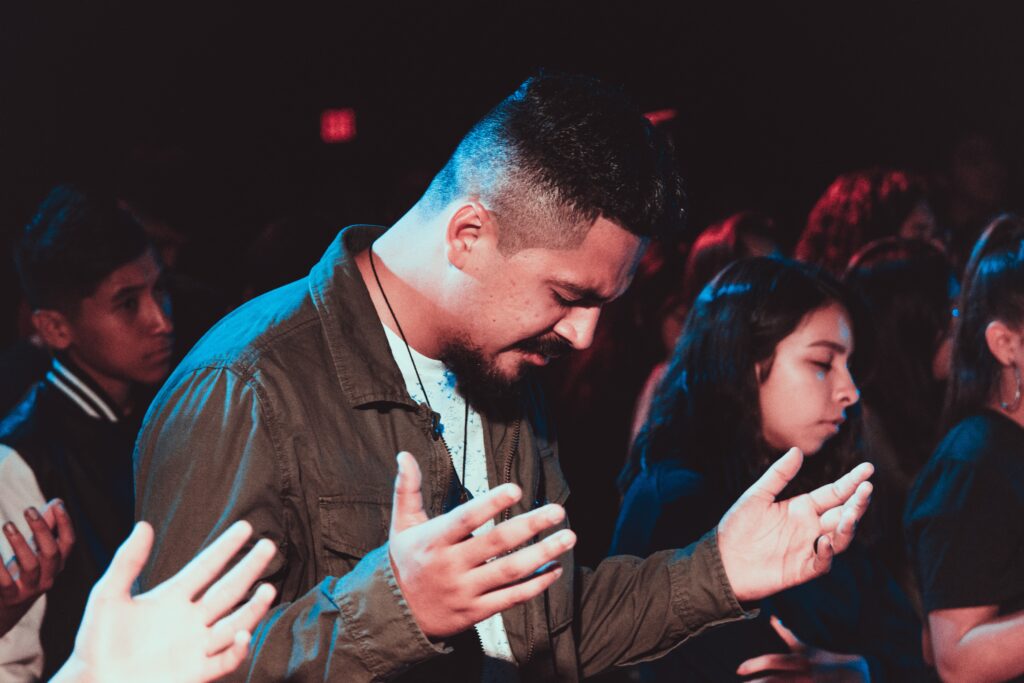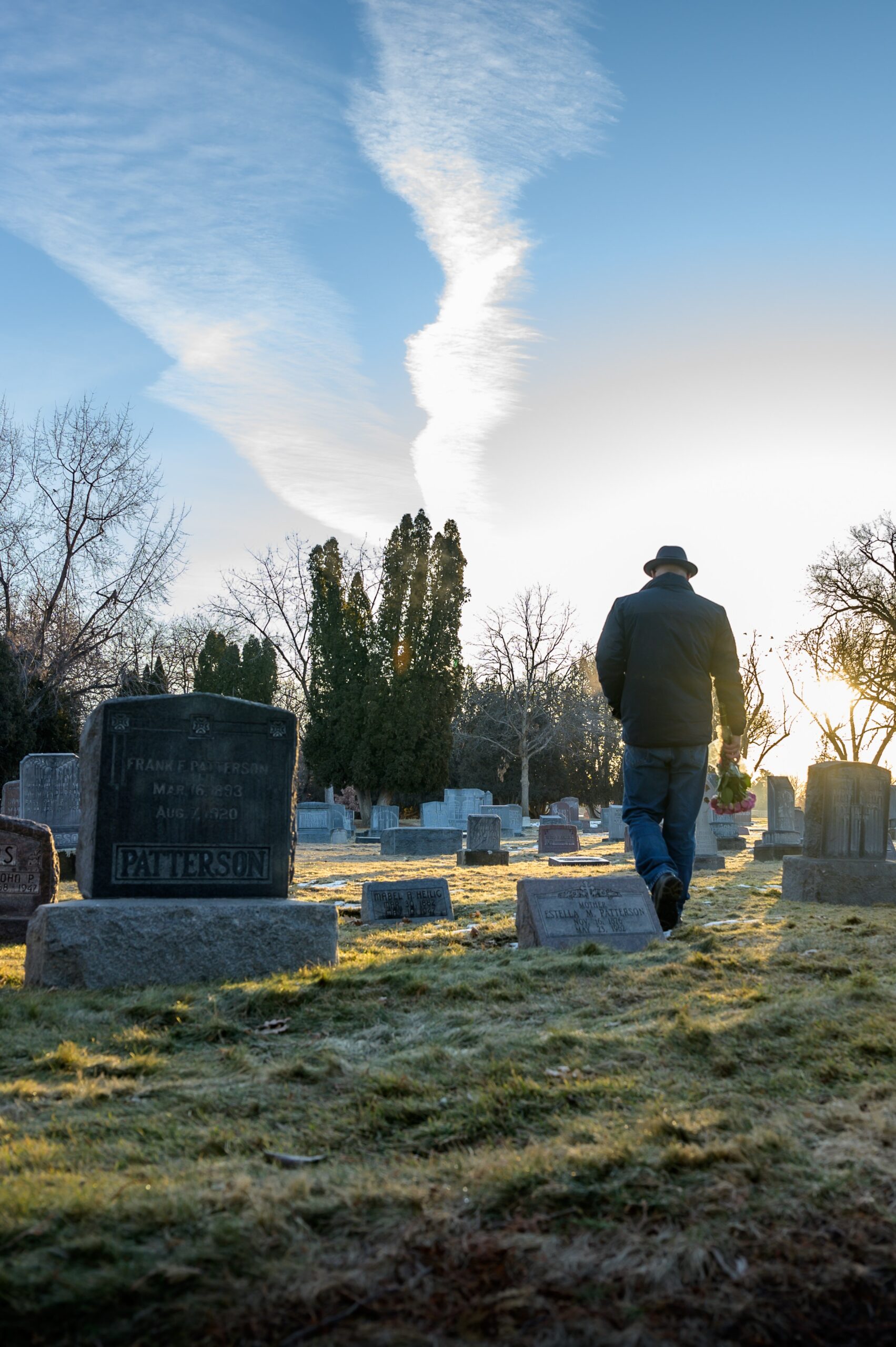
Guarding the guardians: what constitutes ‘good’ religion?
Having argued that not all forms of religion are positive, Joseph Evans proposes criteria to distinguish the good from the bad.
In the first part of this article, I took issue with the statement “The problem is not religion per se”. While acknowledging that there is nothing wrong with this view – per se – I argued it could easily lead to the erroneous affirmation that there is nothing necessarily wrong with all religions in themselves. Any bad actions by religious believers in the name of their creed would simply be due to the fault of individuals or groups within that faith and not ascribable to the mother creed.
This notion, I insisted, is very mistaken. There can be a lot wrong with many religious ideas and forms. It is therefore essential to clearly discern and highlight diseased forms of religious life in order to distinguish those others which really do aspire to the noblest and holiest goals.
But how can we judge religions, and who judges them? Ay, there’s the rub!
Certainly the State cannot do so because it is religiously incompetent and indeed illiterate: no civil apparatus has the theological capacity to judge the validity of different religious expressions and any attempt to do so would only lead to efforts by the State to control or wrap itself in the flag of religion – as has often happened in history with dire consequences for both religious and secular institutions.
Nor we can leave this judgment to what would be considered the consensus of an age or society. The current consensus in Western society, for example, is precisely that secular liberal attitude which views religion as a force for harm not good. The efforts in my own country to define ‘British values’ have likewise shown how unwise it is to entrust such judgments to the view of the majority: these ‘values’ become the ideological fashions and shallow moralism which those who shout loudest manage to impose on others.
So, what can we do? Well, I’ve decided to take a leaf out of a secular science book, or more exactly an online magazine, and see how they seek to achieve consensus in an area where there is no authority to decide either.
In a recent article for Psychology Today, Dominic Burbidge and Tyler J. VanderWeele outlined the work of the Citizenship in a Networked Age project at the University of Oxford. The project sought to answer the question, “What new civic virtues are required for the networked age?” They consider how in a society which increasingly only gives value and credence to the empirical – what can be proved through experimentation: the cult of data – one can identify those non-tangible values which go beyond explicit scientific demonstration. Can an experiment really prove that honesty is the best policy?
Undaunted by the challenge, the project came up with these criteria for identifying virtue. For an idea/project/philosophy to pass their tests it must:
- Identify and protect human uniqueness for moral decision-making.
- Nurture the complementary skills of humans and machines for collective decision-making.
- Engage in consensus-building about civic ideals for a networked age.
- Teach listening as a civic virtue.
- Maintain distance between thought and speech.
- Promote the value of privacy for personal moral development.
- Revalue democracy in terms of the ability to bring about social unity and trust.
A discussion of these principles would need an article in itself (herewith an invitation as Adamah’s editorial director to any author who wants to take up the gauntlet!) but what strikes me more than the details of the actual proposals is the thinking behind them: the attempt to come up with some basic guidelines to seek consensus on moral reasoning in our digital, pluralistic and relativistic age – or in other words, in a world which does most things online and finds it hard to agree on ethical rules, if it thinks about them at all.
This got me thinking that maybe we could – and should – come up with some basic guidelines to judge religions, at least to avoid the naïve presumption that they are all the same and equally good and that someone sympathetic to religion has to be like the Queen in Alice’s Adventures in Wonderland and believe “six impossible things before breakfast”.
In this way we might just help religion to be more part of the solution than of the problem.
And as one ever ready to rush in where angels fear to tread (if we’re allowed to believe in angels), here’s a list of criteria which I’ve come up with myself. For me a true and positive faith should:
Value both mystery and reason:
Authentic religion must both value the sense of mystery (religion is ultimately about the divine, about what is beyond our knowledge and condition) and respect the legitimate role of reason. The former is essential because religion must offer true worship to God (however understood). It should therefore have a deep sense of piety, even awe, reaching out to a being who is far superior to us. It must be able to connect us with the divine and not simply be an exercise in funny inside feelings. But failure to use reason would lead the religion to fall into superstition or fanaticism. If a religion is afraid of thought or challenging questions, this can only suggest it stands on shaky ground.
Religion is a leap into the unknown, not into the absurd. It is above not against reason. In authentic religion, faith and reason should have a mutually enriching relationship.

Promote humanity:
While religion seeks union with the divine, in its efforts to do so it must elevate the human person and value and enhance all legitimate human aspirations. A religion which requires the crushing of men and women for the exaltation of the deity cannot be acceptable or true. A deity requiring such cult would be a tyrant and therefore logically imperfect and so not truly divine. Some ancient religions did believe that men were made simply to do manual labour for the gods, or saw the gods as little more than humans writ large, magnified (im)mortals sharing our passions on a grand scale. This made for great stories but not for true religion. While earthly progress is not the goal of religion, true religion should still lead to positive progress (though what exactly this is can sometimes be hard to gauge). Indeed, failure to promote human dignity and progress would be a sign of deficiency in that religious form.
Promote all things good:
True religion would therefore foster the promotion of the arts and culture, of science, healthy economic development, learning and philosophy, of law and the respect for the dignity of all, irrespective of gender, age, social status, health or ethnicity. True religion elevates, it does not degrade. It brings out the best in us, not the worst. It does not oppress some for the sake of others. It hates only evil, not people. Religion is for the worship of the deity, but if this deity is real and effective and good, such worship should necessarily have the knock-on effect of promoting our own full flourishing.

Display a capacity for self-renewal:
An authentic religion should show the capacity to renew itself. Religions necessarily involve sin: indeed, various religions see the salvation of sinners, however this salvation might be understood, as a key part of their belief system and offer a way to rise above our sins. One should therefore not be surprised or shocked to discover sin and sinners in such religions, even among their leaders. In the words of the farmer, If you work with muck, you will get dirty. What should shock, however, is if sin were always to have the last word, if that religion showed an incapacity to reform itself. Every religion will always have to face the reality of sin and at times this sin might lead to widespread corruption within its own ranks. But the mark of authentic religion would be that the sacred principles of that faith managed to live on in spite of everything and sooner or later found a way to reform it, through its saints, holy men, prophets or inspirational leaders. Sin will never be fully vanquished but the religion continues to show signs of holiness and good living and deeds practised by many of its members. Likewise, one should not be surprised that the leaders and faithful of that religion might have made mistakes, even big ones (to err is human …). Indeed, no religion can ever be totally free of the ignorance of its age, and might even have added to such ignorance.
But for a religion to be true, it needs to show a capacity to learn from its mistakes.
Authentic religion will likewise not be surprised at the existence of evil (religion is about the conquest of evil, which it therefore believes to be real), knowing there can be anti-deity, demonic forces promoting it and fostering it in human hearts, but will always fight to oppose such evil in the name, and through the power, of the divinity.
Profess a sense of objective truth, while maintaining an openness to dialogue:
Religion should have a sense of objective truth, without fearing the manifestations of truth found outside its own teaching and visible boundaries. A religion that doesn’t believe in itself can hardly be true. A religion that believes everything is true is hardly reasonable. It is only right and logical that a religion claims to be the true one. One should be more concerned if it didn’t. But that religion should love truth so much that it be able to recognise aspects of truth found elsewhere, even while considering that these are only reflections or glimmers of its own teaching. A religion that felt the need to suppress others for its own survival shows a profound insecurity. It can, however, and in principle should, respectfully point out what it considers the errors and inadequacies of other creeds, while being able to enter into dialogue with them.
Evangelise with a universal spirit:
The above-mentioned sense of truth would necessarily lead the members of that religion to want to share it with others, and this will lead to an evangelising, universal spirit. One feels the need to bring to others the truth and salvation one experiences in that creed. This sharing would be respectful, without coercion or violence (something that most religions have failed to understand at least at some point in their histories). The lack of desire to share one’s faith with others would put in doubt the truth of that religion. A true belief cannot be closed in on itself for reasons of ethnicity, nationality, class, supposed intellectual superiority, or any other reason … Truth is generous and open to all.
Display a capacity for discernment:
A true religion cannot be locked in the past and resist all progress, raging against modernity. But neither should it embrace modernity so much that it betrays its fundamental principles. It should be able to distinguish between what is good and what is bad in its age. It should, itself, be a force for development, inspiring positive movements in society through its beliefs, while acting as a prophetic voice to warn against possible forms of corruption in that society or development wrongly understood. This involves a clear sense of tradition, which, like a healthy tree, has deep roots (in the past), is open to all that is good in the present, and looks hopefully towards the future (as the tree grows upward and its branches and leaves receive oxygen from the air and offer shelter to the birds).

Have a clear and consistent moral code:
Religions aim to lead men and women to goodness, following the commands and will of a good divinity. A religion which does not make people good – and truly good, to a high degree of goodness – is not good itself. The religion should have a clear sense of what that goodness is because if it doesn’t, how can it promote goodness? At the same time it should be able to recognise that many will fail to live out this goodness and should have mechanisms to deal with such failures. A one-strike policy in a religion would suggest more its weakness than its strength (it is unable to save its members from sinfulness) and also an unmerciful and impotent deity.
Lead to good deeds:
Authentic religion can never be a mere theory. Religion which does not influence our lives, leading to good actions, is weak and ineffective. Authentic religion therefore most shows itself in its saints. Fundamentally, authentic religion promotes and inspires love, seen as effective action for the good of others and not just a sentimental feeling, though love can occasionally involve rebukes and punishment (tough love).
So there you go. A handy vademecum to help you assess effortlessly different forms of religious expression whenever you come across them… Not!
And of course not, because religion is, of its very nature, too mysterious and too personal a phenomenon to allow easy classification. Indeed, I offer these thoughts as rough notes, ready for them to be challenged or perhaps added to and aware that this is most certainly not my final draft on the topic.
Yet at least these ideas might help to dispel so much naïve thinking about religion and the erroneous belief, which only harms authentic forms of religion by lumping them together with corrupt ones, that all religious expressions are in themselves good. Because – if you haven’t got the idea yet, let me repeat it – they are not.
But after two articles and over 3000 words, maybe the best thing is to conclude with some words from the founder of my own religion, Christianity. Jesus put it succinctly when he affirmed, “you will know them by their fruits… A sound tree cannot bear evil fruit, nor can a bad tree bear good fruit.” Maybe that says it all.
Like what you’ve read? Consider supporting the work of Adamah by making a donation and help us keep exploring life’s big (and not so big) issues!

